- UFPE/
- Institucional/
- Campi / Centros Acadêmicos/
- Campus Recife/
- Centro de Ciências Exatas e da Natureza (CCEN)/
- Notícias CCEN/
- Seminário de Óptica acontece amanhã (12) no auditório do Departamento de Física
Seminário de Óptica acontece amanhã (12) no auditório do Departamento de Física
Tema será “Challenges in UV spectroscopy: generation of ultrabroadband phase-locked UV pulses”
O Departamento de Física realizará amanhã (12), no auditório do próprio departamento, o Seminário de Óptica com a temática “Challenges in UV spectroscopy: generation of ultrabroadband phase-locked UV pulses”. Ministrado pelo professor Cristian Manzoni do IFN-CNR, do Departamento de Física, do Politecnico di Milano, da Itália, o seminário começará às 14h.
Resumo
Two-dimensional electronic spectroscopy is a powerful spectroscopic technique for the study of dynamics in coupled multichromophore systems, which has been successfully applied in the visible and infrared ranges. Its extension to the UV range (2DUV) is extremely promising for the study of biomolecules but poses several technical challenges: (i) the requirement of phase-locked pulse pairs; (ii) generation of extremely broadband UV pulses; (iii) dispersion management for the UV range. In the talk we will first introduce the basic principles and challenges for 2D spectroscopy. We will then present various strategies to generate ultrabroad phase-locked UV pump pulses, starting from 10-mJ, <6-fs visible pulses from a non-collinear optical parametric amplifier (NOPA). The two delayed, phase-locked replicas of the visible pulses are generated by a compact ultrastable birefringent interferometer that allows varying with sub-cycle accuracy and up to 1 ps the delay between the two replicas. Subsequently, the UV pump pulse pairs can be generated by Sum Frequency Generation, Second Harmonic generation or Achromatic Second Harmonic Generation. We will discuss the properties of these techniques, and examples of applications of the pule replicas to 2DUV spectroscopy of biomolecules.







